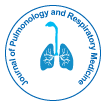当社グループは 3,000 以上の世界的なカンファレンスシリーズ 米国、ヨーロッパ、世界中で毎年イベントが開催されます。 1,000 のより科学的な学会からの支援を受けたアジア および 700 以上の オープン アクセスを発行ジャーナルには 50,000 人以上の著名人が掲載されており、科学者が編集委員として名高い
。オープンアクセスジャーナルはより多くの読者と引用を獲得
700 ジャーナル と 15,000,000 人の読者 各ジャーナルは 25,000 人以上の読者を獲得
抽象的な
Respiratory Rehabilitation: A Lifeline for Breathing Health
Dong Wang
Respiratory rehabilitation is a critical intervention that plays a vital role in improving the quality of life for individuals with various respiratory conditions. This abstract provides a concise overview of the significance and benefits of respiratory rehabilitation in promoting breathing health.
Respiratory diseases, such as chronic obstructive pulmonary disease (COPD), asthma, interstitial lung disease, and post-operative conditions, often result in impaired lung function, reduced exercise capacity, and a decreased overall quality of life. Respiratory rehabilitation is a multidisciplinary approach that combines exercise training, patient education, and psychosocial support to address these issues. This comprehensive program empowers patients to regain control over their breathing and enhances their physical and emotional well-being. Key components of respiratory rehabilitation include supervised exercise sessions tailored to the individual's capacity, which help improve muscular strength and endurance. Educational components provide patients with a better understanding of their condition, breathing techniques, medication management, and lifestyle modifications. Furthermore, psychosocial support and counseling are offered to address anxiety, depression, and the emotional challenges associated with respiratory conditions. Respiratory rehabilitation serves as a lifeline for individuals with respiratory conditions, offering a holistic approach to improve their breathing health and overall quality of life. This multidisciplinary intervention, combining exercise, education, and psychosocial support, is a crucial tool in managing and mitigating the impact of respiratory diseases. It not only enhances lung function and physical well-being but also provides the emotional support needed to face the challenges of living with a respiratory condition. It is imperative that healthcare professionals and policymakers recognize the significance of respiratory rehabilitation and make it more accessible to those in need, ensuring a better future for individuals living with respiratory diseases.

 English
English  Spanish
Spanish  Chinese
Chinese  Russian
Russian  German
German  French
French  Portuguese
Portuguese  Hindi
Hindi